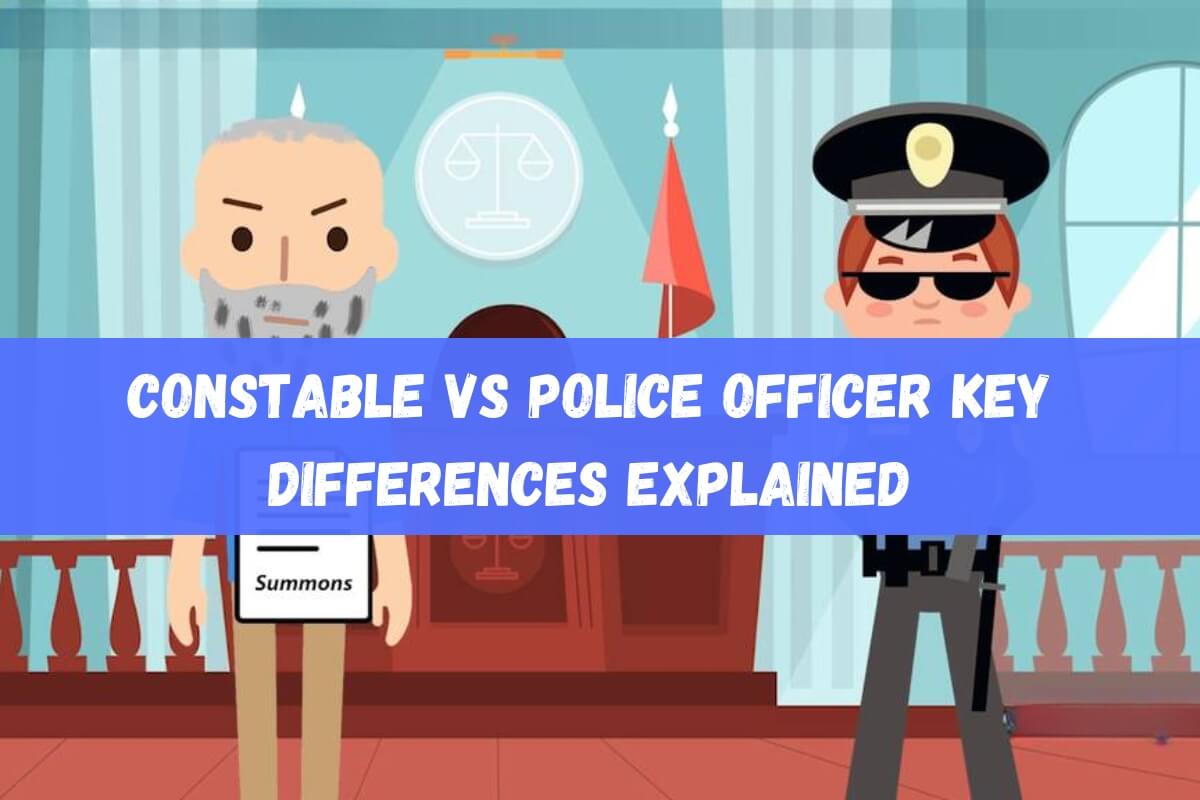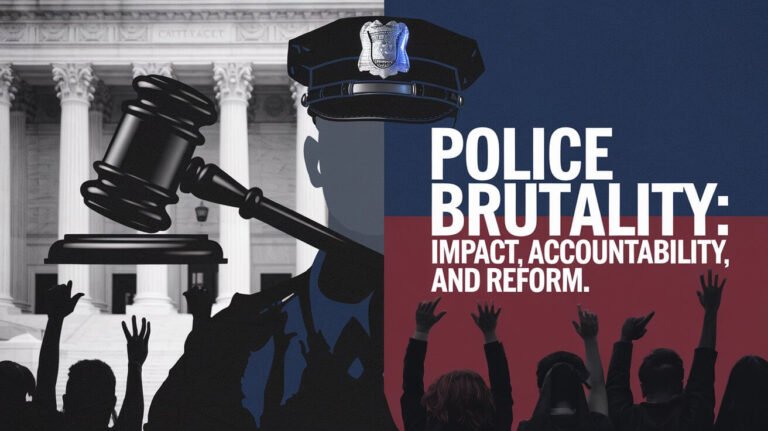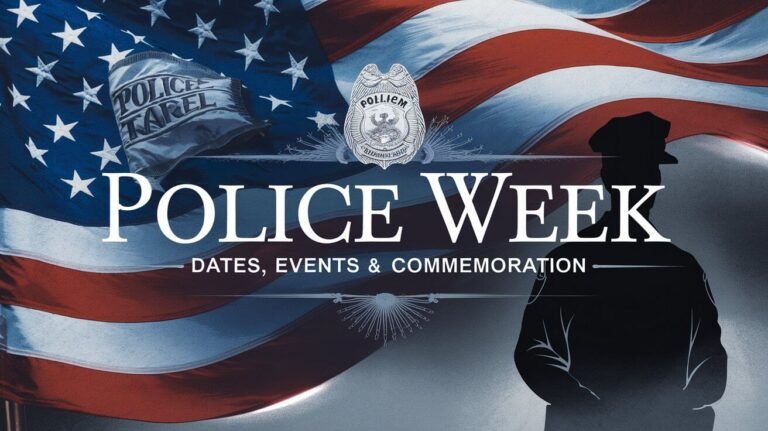Constable vs Police Officer: Key Differences Explained

Law enforcement plays a crucial role in maintaining public safety and upholding laws within our communities. While both constables and police officers fall under the umbrella of law enforcement, there are significant differences in their roles, responsibilities, and jurisdictions. In this comprehensive guide, we’ll explore the key distinctions between constables and police officers, shedding light on their duties, training requirements, and work environments.
The primary difference between constables and police officers lies in the scope of their responsibilities. Constables primarily focus on civil duties, such as serving legal documents and enforcing court orders, while police officers are responsible for a broader range of law enforcement tasks, including criminal investigations, traffic enforcement, and emergency response.
Throughout this article, we’ll cover the following aspects:
- Defining the roles of constables and police officers
- Authority and jurisdictions of constables vs. police officers
- Duties and responsibilities of constables vs. police officers
- Training and certification requirements
- Work environments and daily routines
- Salary and job outlook comparisons
- Historical background and evolution of these roles
Whether you’re considering a career in law enforcement or simply curious about the distinctions between these two professions, this comprehensive guide will equip you with a thorough understanding of the constable vs. police officer dynamic.
What is a Constable?
A constable is a law enforcement officer whose primary responsibilities revolve around civil duties and serving the court system. The specific roles and authorities of constables can vary greatly across different states and jurisdictions, but generally, they are tasked with:
- Serving legal documents: Constables are responsible for delivering court summons, subpoenas, eviction notices, and other legal documents to individuals or businesses.
- Enforcing court orders: They execute court orders related to property seizures, evictions, and other civil matters.
- Providing courtroom security: In some jurisdictions, constables act as bailiffs, maintaining order and security within courtrooms.
- Enforcing local ordinances: Depending on the area, constables may have the authority to enforce specific local ordinances, such as noise ordinances or traffic regulations within their jurisdiction.
A constable’s law enforcement powers vary by state. In some states, they have limited authority and focus on civil duties, while in others, they have broader police powers, including making arrests, conducting investigations, and enforcing criminal laws.
What is a Police Officer?
A police officer is a law enforcement professional responsible for maintaining public safety, enforcing laws, and investigating crimes within their jurisdiction. Police officers are typically employed by municipal, county, state, or federal law enforcement agencies. Their duties generally include:
- Patrolling assigned areas: Police officers regularly patrol designated areas, monitoring for criminal activity, traffic violations, and potential safety hazards.
- Responding to emergency calls: They are often the first responders to emergencies, such as robberies, assaults, fires, or medical emergencies.
- Conducting investigations: Police officers investigate crimes by gathering evidence, interviewing witnesses, and apprehending suspects.
- Enforcing traffic laws: They monitor and enforce traffic laws, issue citations for violations, and respond to traffic incidents or accidents.
- Maintaining public order: Police officers are responsible for ensuring public order during events, protests, or other gatherings.
- Providing community outreach: Many police departments emphasize community engagement, where officers interact with residents, build relationships, and address local concerns.
Police officers are typically granted broad law enforcement powers within their jurisdiction, including the authority to make arrests, conduct searches, and use reasonable force when necessary.
Constable vs. Police Officer: Key Differences
Constables and police officers are law enforcement professionals with different roles, responsibilities, and jurisdictions:
- Authority and Jurisdiction:
- Constables: The authority and jurisdiction of constables can vary greatly depending on the state or local laws. In some areas, they have limited authority and primarily focus on civil duties, while in others, they have broader police powers similar to police officers.
- Police Officers: Police officers generally have broader law enforcement authority within their assigned jurisdiction, which can range from a city, county, state, or federal level.
- Primary Responsibilities:
- Constables: Constables’ primary responsibilities revolve around serving legal documents, enforcing court orders, providing courtroom security, and enforcing specific local ordinances.
- Police Officers: Police officers are responsible for a wider range of law enforcement duties, including criminal investigations, traffic enforcement, emergency response, and maintaining public order.
- Training and Certification:
- Constables: The training and certification requirements for constables can vary significantly across different states and jurisdictions. In some areas, constables may receive specialized training, while in others, the requirements may be less stringent.
- Police Officers: Police officers typically undergo extensive training at a police academy, where they learn about law enforcement procedures, criminal investigations, self-defense techniques, and other relevant skills.
- Work Environment:
- Constables: Constables may spend a significant portion of their time in office settings, serving legal documents, or providing courtroom security. Their work may involve more administrative tasks related to civil matters.
- Police Officers: Police officers spend a considerable amount of time patrolling assigned areas, responding to emergency calls, and engaging with the public. Their work environment is often more dynamic and unpredictable.
- Salary and Job Outlook:
- Constables: The salary and job outlook for constables can vary depending on the jurisdiction and the specific responsibilities associated with the role.
- Police Officers: According to the U.S. Bureau of Labor Statistics, the median annual salary for police officers was $74,910 in 2023, with a projected job growth of 3% from 2022 to 2032, which is as fast as the average for all occupations.
The roles and responsibilities of constables and police officers can overlap in some jurisdictions, and the distinctions may not be as clear-cut. The historical background and evolution of these roles have influenced their current structures and responsibilities.
Duties and Responsibilities: A Closer Look
To better understand the differences between constables and police officers, let’s take a more detailed look at their respective duties and responsibilities:
Constable Duties and Responsibilities:
- Serving Legal Documents: One of the primary duties of constables is to serve legal documents, such as summonses, subpoenas, eviction notices, and court orders. They ensure that these documents are properly delivered to the intended recipients.
- Enforcing Court Orders: Constables are responsible for executing court orders related to civil matters, such as property seizures, evictions, and garnishments. They may be tasked with physically removing individuals from properties or seizing assets by court rulings.
- Providing Courtroom Security: In many jurisdictions, constables act as courtroom bailiffs, maintaining order and security during legal proceedings. They may be responsible for escorting defendants, ensuring the safety of judges and court personnel, and enforcing courtroom decorum.
- Enforcing Local Ordinances: Depending on the area, constables may have the authority to enforce specific local ordinances, such as noise ordinances, parking regulations, or other community-based laws.
- Conducting Investigations (Limited): In some states, constables may have limited investigative powers related to civil matters, such as conducting background checks or gathering information for court cases.
Police Officer Duties and Responsibilities:
- Patrolling and Monitoring: Police officers regularly patrol assigned areas, monitoring for criminal activity, traffic violations, and potential safety hazards. They aim to maintain a visible presence and deter crime through their presence.
- Responding to Emergencies: Police officers are often the first responders to emergencies, such as robberies, assaults, fires, or medical emergencies. They secure the scene, provide initial assistance, and coordinate with other emergency services as needed.
- Conducting Investigations: A significant part of a police officer’s job involves investigating crimes. This includes collecting evidence, interviewing witnesses and suspects, and gathering information to build cases for prosecution.
- Enforcing Traffic Laws: Police officers monitor and enforce traffic laws, issue citations for violations, and respond to traffic incidents or accidents. They play a crucial role in maintaining road safety and orderly traffic flow.
- Maintaining Public Order: During public events, protests, or gatherings, police officers are responsible for ensuring public order, crowd control, and protecting the safety of attendees and property.
- Community Outreach and Engagement: Many police departments emphasize community engagement, where officers interact with residents, attend community meetings, and address local concerns. Building positive relationships with the community is an important aspect of their role.
- Providing Emergency Assistance: In addition to responding to criminal incidents, police officers may assist during natural disasters, medical emergencies, or other crises.
The typical duties and responsibilities of constables and police officers can vary depending on the state or local jurisdiction. Some areas may have clearly defined distinctions, while others may have overlapping responsibilities.
Training and Certification Requirements
The training and certification requirements for constables and police officers differ significantly, reflecting the varying levels of authority and responsibilities associated with each role.
Constable Training and Certification:
The training and certification requirements for constables can vary greatly across different states and jurisdictions. In some areas, constables may receive specialized training, while in others, the requirements may be less stringent or non-existent. Here are some common scenarios:
- Elected Constables: In certain states, constables are elected officials, and the requirements may be minimal, such as meeting age, residency, and background check criteria.
- Appointed Constables: In other jurisdictions, constables are appointed positions, and they may be required to complete basic law enforcement training or attend a specialized constable training program.
- Certified Peace Officers: Some states require constables to be certified as peace officers, which involves completing a police academy or equivalent training program.
It’s essential to consult the specific laws and regulations of the state or locality in question to understand the exact training and certification requirements for constables.
Police Officer Training and Certification:
Police officers typically undergo extensive training and certification processes to ensure they are prepared for the demands of their role. The requirements may vary slightly across different law enforcement agencies, but generally include the following:
- Police Academy Training: Most police officers are required to complete a comprehensive training program at a police academy or equivalent institution. This training covers a wide range of topics, including law enforcement procedures, criminal investigations, self-defense techniques, firearms training, emergency vehicle operations, and legal studies.
- Field Training: After completing the police academy, new officers typically participate in a field training program, where they work alongside experienced officers to gain practical experience and apply their learned skills in real-world situations.
- Ongoing Training: Law enforcement agencies often require their officers to undergo regular ongoing training and professional development courses to stay up-to-date with changing laws, procedures, and best practices.
- Certification and Licensing: Depending on the state or agency, police officers may be required to obtain and maintain specific certifications or licenses to perform their duties legally.
The training and certification requirements for police officers are generally more rigorous and comprehensive than those for constables, reflecting the broader scope of their responsibilities and the need for extensive preparation to handle a wide range of law enforcement situations effectively.
Work Environments and Daily Routines
The work environments and daily routines of constables and police officers can differ significantly, reflecting the distinct nature of their roles and responsibilities.
Constable Work Environment and Daily Routine:
The work environment and daily routine of a constable can vary depending on the specific jurisdiction and the scope of their duties. However, in general, constables often:
- Work from an Office Setting: Constables may spend a significant portion of their time in an office setting, handling administrative tasks related to serving legal documents, processing court orders, and managing paperwork.
- Conduct Field Work: Depending on their responsibilities, constables may also spend time in the field, serving legal documents, enforcing court orders, or enforcing specific local ordinances.
- Provide Courtroom Security: In jurisdictions where constables serve as courtroom bailiffs, they may spend a considerable amount of time in courtrooms, ensuring the safety and security of judges, court personnel, and attendees.
- Maintain Regular Office Hours: Unlike police officers who often work shifts, constables may follow more traditional office hours, although their schedules can vary based on court proceedings or other responsibilities.
Police Officer Work Environment and Daily Routine:
The work environment and daily routine of a police officer are often more dynamic and unpredictable, reflecting the diverse range of responsibilities they undertake. Typical aspects of a police officer’s work environment and routine may include:
- Patrol Duties: A significant portion of a police officer’s time is spent patrolling assigned areas, and monitoring for criminal activity, traffic violations, and potential safety hazards.
- Responding to Calls: Police officers are often dispatched to respond to emergency and non-emergency calls, which can range from minor disturbances to serious crimes or incidents.
- Conducting Investigations: Police officers may spend time gathering evidence, interviewing witnesses and suspects, and following up on investigations related to various crimes or incidents.
- Shift Work: Police officers typically work in shifts, which can include night shifts, weekends, and holidays, to ensure 24/7 coverage and availability for emergencies.
- Community Engagement: Many police departments encourage their officers to engage with the community through events, meetings, or outreach programs to build positive relationships and address local concerns.
The work environment for police officers can be physically demanding, stressful, and potentially dangerous, as they often encounter unpredictable situations and confront individuals who may pose a threat to public safety.
Salary and Job Outlook
The salary and job outlook for constables and police officers can vary significantly depending on factors such as location, experience, and the specific jurisdiction or agency they work for.
Constable Salary and Job Outlook:
Due to the varying nature of the constable role across different states and localities, it is challenging to provide a comprehensive overview of salary and job outlook for constables. However, here are some general observations:
- Salary Range: The salary range for constables can be quite broad, with some earning relatively low wages or part-time compensation, while others in areas with broader responsibilities may earn salaries comparable to entry-level police officers.
- Fee-Based Compensation: In some jurisdictions, constables may earn a portion or the majority of their income through fees charged for serving legal documents or executing court orders.
- Job Outlook: The job outlook for constables is largely dependent on the specific jurisdiction and its policies regarding the role. In areas where constables have limited responsibilities or are being phased out, the job outlook may be less favorable, while in other areas, the demand for constables may remain steady or even increase.
Research the specific requirements, responsibilities, and compensation structure for constables in the area of interest to understand the salary and job outlook.
Police Officer Salary and Job Outlook:
The salary and job outlook for police officers are generally more consistent and well-defined across different jurisdictions. According to the U.S. Bureau of Labor Statistics (BLS):
- Median Annual Salary: The median annual salary for police officers and detectives in the United States was $74,910 in 2023.
- Salary Range: Salaries for police officers can vary significantly based on factors such as location, experience, and the specific law enforcement agency. Entry-level police officers may earn lower salaries, while experienced officers or those in higher-cost areas can earn substantially more.
- Job Outlook: The BLS projects overall employment growth of 3% for police officers and detectives from 2022 to 2032, which is about as fast as the average for all occupations. The demand for police officers is expected to remain steady due to the need for public safety services and the retirement of current officers.
Police officers in some areas may earn extra pay for overtime, shift differentials, and specialized roles, increasing their earnings.
Historical Background and Evolution
To better understand the roles of constables and police officers in modern society, it’s helpful to explore their historical backgrounds and how these roles have evolved.
Constables: A Legacy of Community Policing
The role of the constable has its origins dating back to the medieval period in England, where constables were appointed or elected officials responsible for maintaining law and order within their local communities. These early constables were often unpaid and performed their duties in addition to their regular occupations.
As the concept of law enforcement evolved, constables became more formalized and were granted specific powers and responsibilities. In the American colonies, constables played a crucial role in maintaining order and serving legal documents, often working alongside other local officials such as justices of the peace.
Over time, as police departments and modern law enforcement agencies emerged, the role of constables began to shift and vary across different states and jurisdictions. In some areas, constables retained their traditional civil duties, while in others, their responsibilities expanded to include more law enforcement functions.
Today, the role of constables continues to be shaped by local laws and traditions, with some areas phasing out the position altogether, while others maintain constables as an integral part of their judicial and law enforcement systems.
Police Officers: The Evolution of Professional Law Enforcement
The concept of professional police forces emerged in the early 19th century, with the establishment of the Metropolitan Police Service in London in 1829. This model of a centralized, uniformed, and organized police force quickly gained popularity and influenced the development of modern law enforcement agencies around the world.
In the United States, the first modern police departments were established in cities like Boston, New York, and Philadelphia in the mid-19th century. These early police forces were tasked with maintaining order, preventing crime, and enforcing laws within their jurisdictions.
As cities grew and the demand for public safety increased, police departments became more sophisticated and structured organizations. Advancements in training, equipment, and tactics helped professionalize the role of police officers and differentiate them from the earlier constable system.
Over time, police officers’ responsibilities expanded to include not only crime prevention and law enforcement but also emergency response, community engagement, and specialized units for various types of investigations and operations.
Today, police officers play a vital role in modern society, upholding the law and ensuring public safety through a variety of duties and responsibilities. The profession has evolved to incorporate advanced training, technology, and a focus on building strong relationships with the communities they serve.
Historical Intersections and Distinctions
While the roles of constables and police officers have distinct origins and evolutionary paths, there have been instances where their responsibilities and jurisdictions have intersected or diverged throughout history.
In some areas, constables were gradually phased out or absorbed into emerging police departments as law enforcement became more centralized and professionalized. In other regions, constables maintained their traditional roles and coexisted alongside police officers, often with clearly defined boundaries in their respective duties.
One notable distinction is the shift from elected or appointed constables to professional police officers who undergo rigorous training and are employed by dedicated law enforcement agencies. This transition reflects the increasing complexity of law enforcement and the need for specialized skills and resources to address modern challenges.
Despite these historical intersections and distinctions, both constables and police officers have played crucial roles in maintaining law and order within their communities, adapting to the changing times and evolving societal needs.
Conclusion
In conclusion, the roles of constables and police officers, while both falling under the umbrella of law enforcement, have distinct differences in their responsibilities, authorities, and jurisdictions. Constables primarily focus on civil duties, such as serving legal documents and enforcing court orders, while police officers have a broader range of responsibilities, including criminal investigations, traffic enforcement, and emergency response.
The training and certification requirements, work environments, and daily routines of constables and police officers also differ significantly, reflecting the varying levels of authority and responsibilities associated with each role.
The history of constables and police officers shares common roots in community policing and maintaining law and order. Yet, their development has taken different paths. Constables have kept their traditional roles, while police officers have become part of professional, centralized law enforcement agencies.
Constables and police officers play vital roles in upholding the law and ensuring public safety. As society evolves, their roles may adapt to address new challenges and meet changing community needs.






